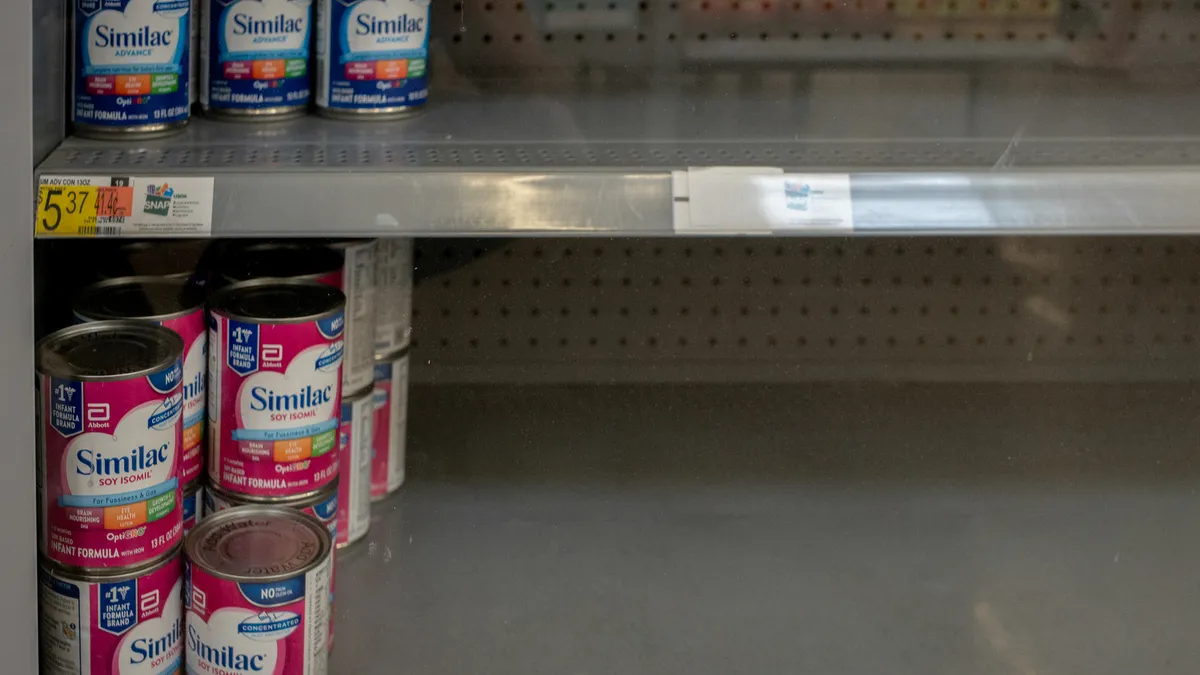Abbott Laboratories is under investigation by the Department of Justice over a Michigan plant that temporarily shut down last year and sparked a national shortage of infant formula.
In an emailed statement, a company spokesperson said the “DOJ has informed us of its investigation and we’re cooperating fully.”
The Wall Street Journal reported on Friday that the department’s consumer protection branch is conducting the probe as a criminal investigation.
The DOJ allowed the plant, in Sturgis, Michigan, to reopen last year under a consent decree with the department’s civil unit that called for extra measures to ensure safety. The plant shut down after the Food and Drug Administration found potentially fatal bacteria at the facility.
Following reports that infants fed the company’s products had died, CEO and Chairman Robert Ford told analysts last April that no genetic match was found between bacteria at the company’s facility and samples from customer complaints.
Ford said then that the lack of genetic match suggested “a different source of contamination” and noted that the FDA found no salmonella in its factory or products following an investigation into reports of infections.
The closure and recall, which included Abbott’s Similac formula brand, played heavily into a nationwide formula shortage that the industry and parents are still navigating.
To mitigate supply shortfalls in the U.S. after the recall, Abbott said that it shipped formula powder from a facility in Ireland and imported from product from another in Spain. It also prioritized formula production at an Ohio facility, converted liquid manufacturing lines of other products those that could make its Similac liquid products and increased production of powdered infant formula at a manufacturing site in Arizona.
Even with those efforts, sales in its pediatric nutrition unit fell 31.7% YoY for the first nine months of 2022, the company said in its most recent 10-Q.
In the DOJ’s civil complaint from May 2022, the DOJ said of Abbott: “Ongoing inadequacies in manufacturing conditions and practices at Defendants’ facilities demonstrate that Defendants have been unwilling or unable to implement sustainable corrective actions to ensure the safety and quality of food manufactured for infants, a consumer group particularly vulnerable to foodborne pathogens.”















